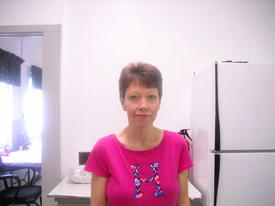Raw vegetables and fruit have calories?
Replies
-
Nnno.
No.There are some fruits and vegetables that are "negative calorie", meaning your body burns more calories than the actual food contains, like celery and blueberries for instance.
'Tis true, although you'd have to eat a crap load of them.
http://caloriecount.about.com/negative-calories-myth-explained-b349703
http://www.acefitness.org/blog/695/do-negative-calorie-foods-really-exist0 -
Nnno.
No.There are some fruits and vegetables that are "negative calorie", meaning your body burns more calories than the actual food contains, like celery and blueberries for instance.
'Tis true, although you'd have to eat a crap load of them.
http://caloriecount.about.com/negative-calories-myth-explained-b349703
http://www.acefitness.org/blog/695/do-negative-calorie-foods-really-exist
http://www.everydayhealth.com/weight/zero-calorie-food-myths.aspx0 -
Yes fruit and vegetables have calories. Serious question or not, this site is for helping people. No matter what we think about the individual's question. Ignore the people who took the time to poke fun of your question. Everyone can't be like them. keep asking your questions. That is the only way you will learn. I have included a website that has been helpful to me, Good luck on your journey to a healthier you.
http://www.livestrong.com/article/280209-fruits-vegetables-with-little-or-no-calories/0 -
Nnno.
No.There are some fruits and vegetables that are "negative calorie", meaning your body burns more calories than the actual food contains, like celery and blueberries for instance.
'Tis true, although you'd have to eat a crap load of them.
http://caloriecount.about.com/negative-calories-myth-explained-b349703
http://www.acefitness.org/blog/695/do-negative-calorie-foods-really-exist
@Anvilhead- keep your lies to yourself. I'm on my way to the store to buy blueberries. They're delicious, and now I find out they're negative calories! COUNT.ME.IN!0 -
Eat ALL TEH BLUEBERRIEZ!!!@Anvilhead- keep your lies to yourself. I'm on my way to the store to buy blueberries. They're delicious, and now I find out they're negative calories! COUNT.ME.IN!0 -
Eat ALL TEH BLUEBERRIEZ!!!@Anvilhead- keep your lies to yourself. I'm on my way to the store to buy blueberries. They're delicious, and now I find out they're negative calories! COUNT.ME.IN!
Is there anything in your "science" that tells you where the tipping point is between enough blueberries to make the calories negative and this: 0
0 -
Everyone attacking her for not knowing needs to watch themselves. The only dumb question is one not asked. Please be positive and not negative.0
-
I probably eat about 300-400 calories of raw fruits and vegetables each and every day. They totally have calories and they totally count.
I do the same thing. Lots of fresh fruit and canned fruit in 100% fruit juice since alot of fruit is out of season. I eat it w/ cottage cheese every night. I love fruit and like the op I eat 300 plus calories a day in fruit alone. Yes, it has calories and they can added up and they do count!!!0 -
Everyone attacking her for not knowing needs to watch themselves. The only dumb question is one not asked. Please be positive and not negative.
:flowerforyou:0 -
I know what you are talking about, there are some diets that list some Negative calorie and or free foods A Look at Negative Calorie Foods on this website
http://www.calories-in-foods.com/negative-calorie-foods-list.php0 -
There's no calories in mustard
Nope- even mustard has calories. They're just less than 5 calories per serving, and thus reported as "O cal" on food labels. Look up the MFP 'official' entry for mustard. "Mustard - Yellow" (with no preceding asterisk). There are 165 calories per cup, which works out to 3 calories per teaspoon serving, legally allowed to report as 0.0 -
This can't be a real question. I dont believe it. And raw or cooked both have calories, in case it's the raw part that has you so stumped.0
-
Hilarious
Eat ALL TEH BLUEBERRIEZ!!!@Anvilhead- keep your lies to yourself. I'm on my way to the store to buy blueberries. They're delicious, and now I find out they're negative calories! COUNT.ME.IN!
Is there anything in your "science" that tells you where the tipping point is between enough blueberries to make the calories negative and this: 0
0 -
We were looking at a food label on something in the grocery store last night which showed it as 0 calories, yet it had 1g carbs. If it has 1g of carbs, it has 4 calories - but as MoreBean said, the food industry is allowed to show '0' for anything less than 5 calories/serving.There's no calories in mustard
Nope- even mustard has calories. They're just less than 5 calories per serving, and thus reported as "O cal" on food labels. Look up the MFP 'official' entry for mustard. "Mustard - Yellow" (with no preceding asterisk). There are 165 calories per cup, which works out to 3 calories per teaspoon serving, legally allowed to report as 0.0 -
Calories are a unit of measuring energy. Everything you eat contains energy, even natural produce.
Science..... It is kinda awesome 0
0 -
As listed in the U.S. Department of Agriculture publication Nutritive Value of Foods, only six food items out of 1,274 contain zero calories. These foods are: 5 sprigs of fresh dill weed; 8 fl oz of municipal tap water; one teaspoon of table salt; one teaspoon of the leavening agent baking soda; 12 fl oz of club soda; and 12 fl oz glass of a low-calorie carbonated beverage, without caffeine, except cola or pepper beverages.
Very low-calorie foods like celery do require more energy to digest in comparison to the number of calories they provide, according to Mayo Clinic preventive medicine specialist Donald Hensrud, M.D.
Unfortunately, Dr. Donald Hensrud says that although a negative=calorie food is possible "there are no reputable scientific studies to prove that certain foods are negative-calorie." According to information provided by the McKinley Health Center at the University of Illinois, the human body burns about 10 calories as it breaks down 100 calories.
Thought this was interesting.0 -
.... "there are no reputable scientific studies to prove that certain foods are negative-calorie."
Yeah, I find this interesting too 0
0 -
.... "there are no reputable scientific studies to prove that certain foods are negative-calorie."
Yeah, I find this interesting too
Lol, okay, and?0 -
There's no calories in mustard
Nope- even mustard has calories. They're just less than 5 calories per serving, and thus reported as "O cal" on food labels. Look up the MFP 'official' entry for mustard. "Mustard - Yellow" (with no preceding asterisk). There are 165 calories per cup, which works out to 3 calories per teaspoon serving, legally allowed to report as 0.
We were looking at a food label on something in the grocery store last night which showed it as 0 calories, yet it had 1g carbs. If it has 1g of carbs, it has 4 calories - but as MoreBean said, the food industry is allowed to show '0' for anything less than 5 calories/serving.
Supplemental light reading on FDA Labeling of caloric content:
http://www.fda.gov/downloads/Food/GuidanceComplianceRegulatoryInformation/GuidanceDocuments/FoodLabelingNutrition/FoodLabelingGuide/UCM265446.pdf
Page 34, N7: The caloric value of a product containing less than 5 calories may be expressed as zero or to the nearest 5
calorie increment (i.e., zero or 5 depending on the level). Foods with less than 5 calories meet the definition of “calorie
free” and any differences are dietarily insignificant. 21 CFR 101.9(c)(1)
Page 34, N8: "Calories must be shown as follows:
50 calories or less--Round to nearest 5-calorie increment: Example: Round 47 calories to “45 calories”
Above 50 calories--Round to nearest 10-calorie increment: Example: Round 96 calories to “100 calories”
21 CFR 101.9(c)(1) Also see Appendix H for rounding guidelines."
(The second quote isn't really relevant to this particular issue, I just think it's interesting)0 -
That website is so full of malarkey and misinformation that it's funny.I know what you are talking about, there are some diets that list some Negative calorie and or free foods A Look at Negative Calorie Foods on this website
http://www.calories-in-foods.com/negative-calorie-foods-list.php
Now, here's an excerpt from an actual science-based article rather than a bunch of scammy diet BS (emphasis added to highlight the portion relevant to this topic):The thermic effect of food (TEF, also known as specific dynamic action or SDA or Dietary Induced Thermogenesis or DIT) refers to the slight bump in metabolic rate that occurs after eating, due to processing and utilization of the ingested nutrients. For example, protein has to be broken down and processed in the liver which requires energy. As well, the simple act of eating protein stimulates protein synthesis in various tissues (organs, liver, muscle) as well. All of which takes energy. Carbohydrates get broken down to glucose, which goes through the liver, some processing, etc. Fat undergoes the least processing. There are exceptions such as medium chain triglycerides (MCTs) which undergo quite a bit of processing in the liver, causing a slight bump in metabolic rate (via TEF) in the process.
As it turns out, different nutrients have different individual TEF’s. Protein turns out to have the highest, to the tune of 20-30%. Meaning that of the total protein calories you eat, 20-30% is lost in processing. Carbohydrate stored as glycogen requires about 5-6% of the total calories. Carbohydrate converted to fat (which generally doesn’t happen in very significant amounts) uses up ~23% of the total calories as TEF. Most fats have a tiny TEF, maybe 2-3% (because they can be stored as fat in fat cells with minimal processing).
As stated above, the TEF of carbohydrates is approximately 5-6%. A 4-inch stalk of celery contains somewhere around 3 calories. The TEF will total up to 0.18 calories at most, leaving a net intake of 2.82 calories. Negligible, but it's not "negative calories". A cup of blueberries contains around 83 calories. The TEF will total up to just under 5 calories (4.98), leaving a net intake of 78.02 calories. Definitely NOT negative calories.0 -
That website is so full of malarkey and misinformation that it's funny.I know what you are talking about, there are some diets that list some Negative calorie and or free foods A Look at Negative Calorie Foods on this website
http://www.calories-in-foods.com/negative-calorie-foods-list.php
Now, here's an excerpt from an actual science-based article rather than a bunch of scammy diet BS (emphasis added to highlight the portion relevant to this topic):The thermic effect of food (TEF, also known as specific dynamic action or SDA or Dietary Induced Thermogenesis or DIT) refers to the slight bump in metabolic rate that occurs after eating, due to processing and utilization of the ingested nutrients. For example, protein has to be broken down and processed in the liver which requires energy. As well, the simple act of eating protein stimulates protein synthesis in various tissues (organs, liver, muscle) as well. All of which takes energy. Carbohydrates get broken down to glucose, which goes through the liver, some processing, etc. Fat undergoes the least processing. There are exceptions such as medium chain triglycerides (MCTs) which undergo quite a bit of processing in the liver, causing a slight bump in metabolic rate (via TEF) in the process.
As it turns out, different nutrients have different individual TEF’s. Protein turns out to have the highest, to the tune of 20-30%. Meaning that of the total protein calories you eat, 20-30% is lost in processing. Carbohydrate stored as glycogen requires about 5-6% of the total calories. Carbohydrate converted to fat (which generally doesn’t happen in very significant amounts) uses up ~23% of the total calories as TEF. Most fats have a tiny TEF, maybe 2-3% (because they can be stored as fat in fat cells with minimal processing).
As stated above, the TEF of carbohydrates is approximately 5-6%. A 4-inch stalk of celery contains somewhere around 3 calories. The TEF will total up to 0.18 calories at most, leaving a net intake of 2.82 calories. Negligible, but it's not "negative calories". A cup of blueberries contains around 83 calories. The TEF will total up to just under 5 calories (4.98), leaving a net intake of 78.02 calories. Definitely NOT negative calories.
Interesting.0 -
.... "there are no reputable scientific studies to prove that certain foods are negative-calorie."
Yeah, I find this interesting too
Lol, okay, and?
And what? I can't point something out and find it interesting?0 -
.... "there are no reputable scientific studies to prove that certain foods are negative-calorie."
Yeah, I find this interesting too
Lol, okay, and?
And what? I can't point something out and find it interesting?
Lol, I just don't get what you're trying to point out. That was kind of the point of what I posted.0 -
That website is so full of malarkey and misinformation that it's funny.I know what you are talking about, there are some diets that list some Negative calorie and or free foods A Look at Negative Calorie Foods on this website
http://www.calories-in-foods.com/negative-calorie-foods-list.php
Now, here's an excerpt from an actual science-based article rather than a bunch of scammy diet BS (emphasis added to highlight the portion relevant to this topic):The thermic effect of food (TEF, also known as specific dynamic action or SDA or Dietary Induced Thermogenesis or DIT) refers to the slight bump in metabolic rate that occurs after eating, due to processing and utilization of the ingested nutrients. For example, protein has to be broken down and processed in the liver which requires energy. As well, the simple act of eating protein stimulates protein synthesis in various tissues (organs, liver, muscle) as well. All of which takes energy. Carbohydrates get broken down to glucose, which goes through the liver, some processing, etc. Fat undergoes the least processing. There are exceptions such as medium chain triglycerides (MCTs) which undergo quite a bit of processing in the liver, causing a slight bump in metabolic rate (via TEF) in the process.
As it turns out, different nutrients have different individual TEF’s. Protein turns out to have the highest, to the tune of 20-30%. Meaning that of the total protein calories you eat, 20-30% is lost in processing. Carbohydrate stored as glycogen requires about 5-6% of the total calories. Carbohydrate converted to fat (which generally doesn’t happen in very significant amounts) uses up ~23% of the total calories as TEF. Most fats have a tiny TEF, maybe 2-3% (because they can be stored as fat in fat cells with minimal processing).
As stated above, the TEF of carbohydrates is approximately 5-6%. A 4-inch stalk of celery contains somewhere around 3 calories. The TEF will total up to 0.18 calories at most, leaving a net intake of 2.82 calories. Negligible, but it's not "negative calories". A cup of blueberries contains around 83 calories. The TEF will total up to just under 5 calories (4.98), leaving a net intake of 78.02 calories. Definitely NOT negative calories.
If you read the web article carefully, you can see the expert consulted has had their quotes cherry picked to suit the article. The quote where they said there are foods that take more calories to digest, they were likely saying some food take more calories to digest than others, such as comparing bacon to glucose syrup. Opposed to them requiring more to digest than they provide.
If you think about it, if the myth were true, the quantity for this effect to take place would be irrelevant.0 -
.... "there are no reputable scientific studies to prove that certain foods are negative-calorie."
Yeah, I find this interesting too
Lol, okay, and?
And what? I can't point something out and find it interesting?
Lol, I just don't get what you're trying to point out. That was kind of the point of what I posted.
It's quoted. I'm pointing out a part of what you wrote...as in, I find it interesting that through the arguments that there isn't any reputable scientific study that proves that certain foods are negative-calorie. O.o.0 -
I know I'm new and all, but I have to say that I'm shocked that people feel the need to mock and insult someone for asking a simple, on-topic question. I thought these forums would be supportive. I'm sorry to see that I was wrong.0
-
There are some fruits and vegetables that are "negative calorie", meaning your body burns more calories than the actual food contains, like celery and blueberries for instance.
If that was true I'd nibble on them ALL DAY LONG but it is NOT true worst luck!0 -
I did notice that.If you read the web article carefully, you can see the expert consulted has had their quotes cherry picked to suit the article. The quote where they said there are foods that take more calories to digest, they were likely saying some food take more calories to digest than others, such as comparing bacon to glucose syrup. Opposed to them requiring more to digest than they provide.
If you think about it, if the myth were true, the quantity for this effect to take place would be irrelevant.
The positive part about TEF is that, if you notice, protein has a TEF of around 20-30%. That means a nice, lean steak nets us about 30% less calories than it would appear. MOAR STEAK!!!!!! :bigsmile:0 -
There are some fruits and vegetables that are "negative calorie", meaning your body burns more calories than the actual food contains, like celery and blueberries for instance.
If that was true I'd nibble on them ALL DAY LONG but it is NOT true worst luck!
Read what I said after.0 -
yea I don't really get it either, it seems pointless to me. A brand new member, her very first post, a serious question posted in the correct area "Food and Nutrition" and she's laughed at, mocked, someone told her FU for not knowing the info she asked about... great way to make MFP shine... trash the new folks.:noway: :indifferent:I know I'm new and all, but I have to say that I'm shocked that people feel the need to mock and insult someone for asking a simple, on-topic question. I thought these forums would be supportive. I'm sorry to see that I was wrong.
I always appreciate the ppl that actually stick to the topic and take a member seriously (and remember they were new once too) and respond kindly.
I love new members, they bring new life to MFP and make it shine... sometimes it gets a bit tarnished and needs polishing up with new thoughts and ideas. Nothing wrong with asking questions, it's getting mocked for doing so that bothers me.:noway:0
This discussion has been closed.
Categories
- All Categories
- 1.4M Health, Wellness and Goals
- 398.2K Introduce Yourself
- 44.7K Getting Started
- 261K Health and Weight Loss
- 176.4K Food and Nutrition
- 47.7K Recipes
- 233K Fitness and Exercise
- 463 Sleep, Mindfulness and Overall Wellness
- 6.5K Goal: Maintaining Weight
- 8.7K Goal: Gaining Weight and Body Building
- 153.5K Motivation and Support
- 8.4K Challenges
- 1.4K Debate Club
- 96.5K Chit-Chat
- 2.6K Fun and Games
- 4.8K MyFitnessPal Information
- 13 News and Announcements
- 21 MyFitnessPal Academy
- 1.6K Feature Suggestions and Ideas
- 3.2K MyFitnessPal Tech Support Questions












